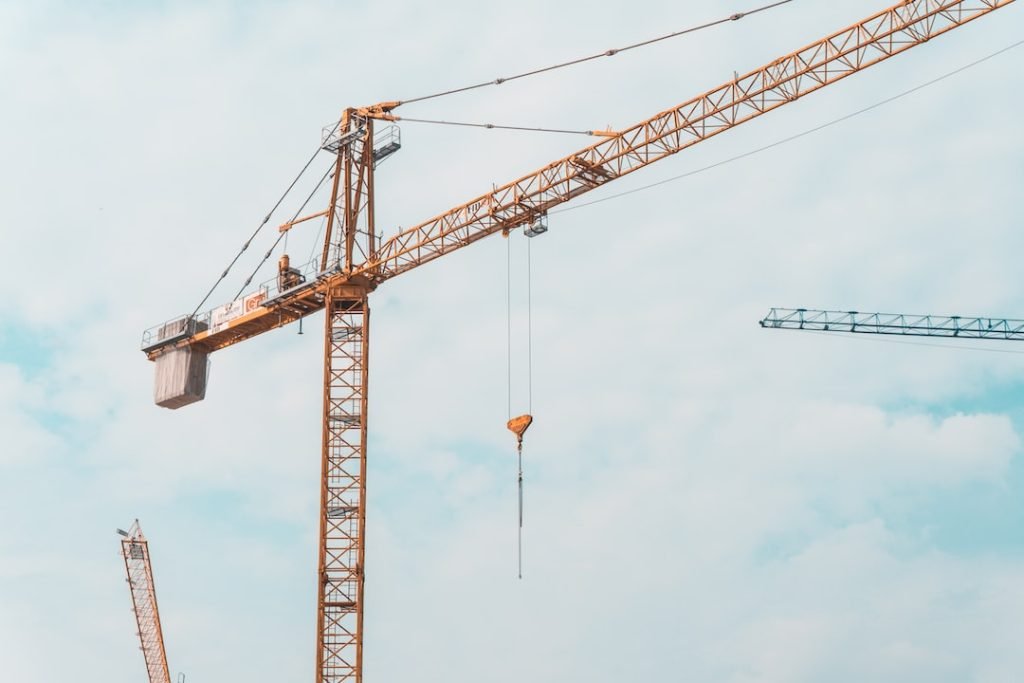

Construction and Trades: Understanding Italian Vocabulary on the Job Site
In today’s globalized world, the ability to communicate effectively with people from different cultures and backgrounds is becoming increasingly important. This is especially true in industries such as construction and trades, where collaboration and teamwork are essential for successful projects. One language that is particularly useful to learn in these fields is Italian. Italy has a rich history of construction and craftsmanship, and many Italian professionals work in the construction industry around the world. Therefore, having a basic understanding of Italian vocabulary can greatly enhance your ability to communicate with Italian-speaking colleagues and contractors.
Being able to communicate with Italian-speaking colleagues and contractors has numerous benefits. Firstly, it allows for smoother collaboration and teamwork on job sites. When everyone can understand each other, tasks can be completed more efficiently and effectively. Additionally, being able to communicate in Italian can help build stronger relationships with Italian-speaking colleagues and contractors. It shows that you value their language and culture, which can lead to better working relationships and increased trust.
Table of Contents
ToggleCommon Italian Terms and Phrases Used on Job Sites
To get started with learning Italian vocabulary in construction and trades, it is helpful to begin with some basic phrases for greetings and introductions. This will allow you to establish rapport with your Italian-speaking colleagues and contractors right from the start. Some common phrases include:
– Buongiorno (Good morning)
– Buonasera (Good evening)
– Come sta? (How are you?)
– Mi chiamo [your name] (My name is [your name])
– Piacere di conoscerla (Nice to meet you)
In addition to greetings and introductions, it is also important to learn the Italian words for common construction materials and tools. This will enable you to effectively communicate about specific tasks and materials on the job site. Some examples of common construction materials include:
– Cemento (Cement)
– Mattoni (Bricks)
– Legno (Wood)
– Vetro (Glass)
– Acciaio (Steel)
Similarly, it is useful to learn the Italian terms for measurements and quantities. This will allow you to accurately communicate dimensions and quantities of materials needed for a project. Some common measurement terms include:
– Metro (Meter)
– Centimetro (Centimeter)
– Litro (Liter)
– Chilogrammo (Kilogram)
– Pezzo (Piece)
Understanding Italian Safety Regulations and Signs
Safety is a top priority on any construction site, and it is crucial to understand the safety regulations and signs in the language of the country you are working in. In Italy, there are specific safety regulations that must be followed on construction sites. These regulations cover areas such as personal protective equipment, hazard identification, and emergency procedures. It is important to familiarize yourself with these regulations to ensure a safe working environment.
In addition to safety regulations, it is also important to understand the common safety signs and symbols used on Italian construction sites. These signs provide important information about potential hazards and safety precautions. Some common Italian safety signs include:
– Divieto di accesso (No entry)
– Pericolo (Danger)
– Attenzione (Caution)
– Uscita di emergenza (Emergency exit)
– Casco obbligatorio (Helmet required)
Italian Vocabulary for Building Materials and Tools
Building materials and tools are essential components of any construction project, and it is important to be able to communicate about them effectively. Learning the Italian words for different types of building materials will enable you to discuss specific materials needed for a project. Some examples of building materials in Italian include:
– Cemento armato (Reinforced concrete)
– Laterizio (Brick)
– Vetroresina (Fiberglass)
– Legno compensato (Plywood)
– Acciaio inossidabile (Stainless steel)
Similarly, it is useful to learn the Italian terms for various construction tools and equipment. This will allow you to discuss specific tools needed for a task or project. Some common construction tools and equipment in Italian include:
– Martello (Hammer)
– Cacciavite (Screwdriver)
– Sega circolare (Circular saw)
– Trapano (Drill)
– Livella (Level)
Communicating with Italian-speaking Colleagues and Contractors
Effective communication is key to successful collaboration on any job site. When working with Italian-speaking colleagues and contractors, there are a few tips that can help improve communication. Firstly, it is important to speak clearly and slowly, especially if Italian is not your first language. This will make it easier for others to understand you.
Additionally, it can be helpful to use visual aids or gestures to supplement your verbal communication. This can help clarify your message and ensure that everyone is on the same page. It is also important to actively listen and ask for clarification if you do not understand something. This shows that you are engaged in the conversation and committed to effective communication.
When giving or receiving instructions, it is important to be clear and concise. Use simple language and break down complex tasks into smaller steps if necessary. It can also be helpful to repeat or summarize instructions to ensure that they are understood correctly.
Italian Vocabulary for Electrical and Plumbing Systems

In addition to general construction vocabulary, it is also useful to learn specific Italian words for electrical and plumbing systems. These systems are essential components of many construction projects, and being able to communicate about them effectively is crucial.
Some common Italian words for electrical systems include:
– Elettricità (Electricity)
– Interruttore (Switch)
– Presa di corrente (Power outlet)
– Filo elettrico (Electrical wire)
– Lampadina (Light bulb)
Similarly, it is important to learn the Italian terms for plumbing systems. Some common plumbing words in Italian include:
– Idraulico (Plumber)
– Tubo (Pipe)
– Rubinetto (Faucet)
– Sifone (Trap)
– Scaldabagno (Water heater)
Italian Terminology for Construction Techniques and Methods
Different construction techniques and methods are used for different types of projects, and it is important to be able to discuss these techniques in Italian. Learning the Italian words for different construction techniques will enable you to effectively communicate about specific tasks and methods on the job site.
Some common Italian words for construction techniques include:
– Fondazione (Foundation)
– Muratura (Masonry)
– Impianto idraulico (Plumbing installation)
– Impianto elettrico (Electrical installation)
– Finitura (Finishing)
Similarly, it is useful to learn the Italian terms for different types of construction projects. This will allow you to discuss specific types of projects and understand their requirements. Some examples of construction project types in Italian include:
– Edificio residenziale (Residential building)
– Edificio commerciale (Commercial building)
– Strada (Road)
– Ponte (Bridge)
– Tunnel (Tunnel)
Understanding Italian Building Codes and Standards
Building codes and standards are regulations that govern the design, construction, and maintenance of buildings. It is important to understand these codes and standards when working on construction projects, as they ensure the safety and quality of the built environment.
In Italy, there are specific building codes and standards that must be followed. These codes cover areas such as structural design, fire safety, and accessibility. It is important to familiarize yourself with these codes to ensure compliance with local regulations.
Learning the common Italian terms used in building codes and standards will enable you to understand and communicate about specific requirements. Some common Italian terms used in building codes and standards include:
– Normativa edilizia (Building regulations)
– Carico strutturale (Structural load)
– Resistenza al fuoco (Fire resistance)
– Accessibilità (Accessibility)
– Isolamento termico (Thermal insulation)
Italian Vocabulary for Construction Project Management
Construction project management involves planning, organizing, and controlling the various aspects of a construction project. It is important to be able to discuss different roles, responsibilities, and tools in Italian when working in construction project management.
Learning the Italian words for different roles and responsibilities in construction project management will enable you to effectively communicate about specific tasks and responsibilities. Some common Italian words for construction project management roles include:
– Direttore dei lavori (Project manager)
– Architetto (Architect)
– Ingegnere civile (Civil engineer)
– Capo cantiere (Site supervisor)
– Impresario edile (General contractor)
Similarly, it is useful to learn the Italian terms for project management tools and techniques. This will allow you to discuss specific tools and techniques used in construction project management. Some examples of project management terms in Italian include:
– Pianificazione (Planning)
– Controllo dei costi (Cost control)
– Gestione del tempo (Time management)
– Analisi dei rischi (Risk analysis)
– Valutazione dei progressi (Progress evaluation)
Tips for Improving Your Italian Language Skills on the Job Site
Learning a new language takes time and practice, but there are several ways to improve your Italian language skills on the job site. Firstly, try to use Italian as much as possible when communicating with Italian-speaking colleagues and contractors. This will give you the opportunity to practice your vocabulary and grammar in real-life situations.
Additionally, take advantage of any opportunities for language exchange or conversation practice. If you have Italian-speaking colleagues or contractors who are interested in learning your language, you can set up language exchange sessions where you can practice speaking in both languages.
Another way to improve your Italian language skills on the job site is to listen to Italian podcasts or watch Italian movies or TV shows during your breaks. This will expose you to the natural rhythm and pronunciation of the language, and help you become more familiar with common phrases and expressions.
Conclusion
In conclusion, learning Italian vocabulary in construction and trades can greatly enhance your ability to communicate with Italian-speaking colleagues and contractors. It allows for smoother collaboration and teamwork on job sites, and helps build stronger relationships with Italian-speaking professionals. By learning common Italian terms and phrases used on job sites, understanding safety regulations and signs, familiarizing yourself with building materials and tools, and improving your communication skills, you can become a more effective and valuable member of any construction team. So, don’t hesitate to continue practicing and improving your Italian language skills on the job site. Buona fortuna! (Good luck!) In conclusion, learning Italian vocabulary in construction and trades can greatly enhance your ability to communicate with Italian-speaking colleagues and contractors. It allows for smoother collaboration and teamwork on job sites, and helps build stronger relationships with Italian-speaking professionals. By learning common Italian terms and phrases used on job sites, understanding safety regulations and signs, familiarizing yourself with building materials and tools, and improving your communication skills, you can become a more effective and valuable member of any construction team. So, don’t hesitate to continue practicing and improving your Italian language skills on the job site. Buona fortuna! (Good luck!) Additionally, being able to communicate in Italian can open up new opportunities for career advancement and international projects. It shows a dedication to professional growth and a willingness to adapt to different environments. So, whether you are just starting out in the construction industry or have years of experience, investing time in learning Italian vocabulary will undoubtedly benefit your career.
If you want to learn Italian, you can register for classes here. We look forward to hearing from you and helping you become fluent in Italian!
If you want to learn Norwegian, you can register for classes here. We look forward to hearing from you and helping you become fluent in Norwegian.





